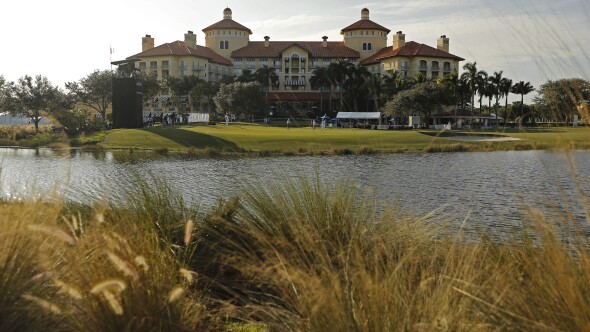Heading out of the country for golf travel always requires a little more planning than a domestic trip. And when it's to an exotic destination on the other side of the world like Thailand, a little extra time should be spent in preparation.
Here's a few tips on how to prepare and pack and what to expect on a Thailand golf vacation.
What to pack for a Thailand golf vacation
Passport, no visa: Residents of most countries in the world are not required to have a visa to visit Thailand, but bring your passport. Make sure it's not expired and there's space for stamps at customs.
High SPF sunscreen: Anything less than SPF 30 will be futile in the tropical sunshine. Bring enough to lather up good, or buy a bottle at the golf club - most of them keep strong sunscreen for sale at a reasonable price.
Skype: Calls abroad from Asia are expensive using hotel phones or smart phones with international service (and chances are, if your wife isn't with you, she'll expect constant updates). If you're bringing a laptop or a smart phone, download Skype, an internet calling service, and you'll be able to call home for pennies. Skype's IPhone application is free, just charge your account before you leave with $10 and connect to a WiFi hotspot when you're abroad.
And while we're on the topic, turn off data roaming on your smart phone, or else you could be looking at a four-figure bill next month. It's happened to many unsuspecting travelers.
Cash: Stay thick with Thai bhat. It's an inexpensive country for Westerners, but it's likely that you'll be tipping for incidental services, at least 20 bhat for locker room attendants, bag boys, etc. Also, most credit cards charge 3-percent foreign transaction fees, so you're better off withdrawing a hunk of cash from an ATM for one flat fee of 150 bhat.
Don't worry, Thailand isn't a nation of pickpockets, just assume normal city savvy walking around.
Business cards: Business travelers to Thailand should bring a box full of business cards. If someone shakes your hand, chances are they want to exchange cards.
Electricity: Thailand uses 220 volt current, but two-prong European and North American prongs will work here. While American 110-volt devices with motors will blow out, laptops and chargers (with built-in converters) should work fine.
Dress code: Dress code in Thailand is extremely casual. Shorts and sandals are acceptable day and night just about anywhere.
Thailand accommodations: What to expect
Four- and five-star Thailand hotels are world class and feature outstanding service and breakfast buffets with trans-continental offerings, often at a fraction of the price of their Western counterparts. All the modern conveniences, from air conditioning to internet, can be expected. Hotel staff will speak and understand English to a competent degree.
ATMs aren't always on site but can be found in abundance in the towns. Tap water is not drinkable anywhere in Thailand, even at the resorts, and tour guides say even ice cubes can sometimes make Westerners sick. Most hotels provide two bottles of water free per person per day.
Thailand golf clubs: What to expect
Thai golf courses have exceptional facilities with full locker rooms, restaurant and sometimes even spas and massage services in the locker room. Bring a change of clothes if you plan on sticking around a little after your round (which you should) because you're going to soak through your clothes on the course - it's that hot.
Also, if you're one of those golfers who likes to drink beer steadily during the round, drink no less than two waters per beer or else you're likely to get a wicked headache (or worse) from dehydration.
It's also common to bring an umbrella - not so much for rain, but for the strong sunshine. Golfers who don't carry one are in the minority. Thai caddies keep their entire body covered, down to cotton gloves.
At the very least, wear a cap and apply strong UV sunscreen. Bring your own clean golf towels to wipe your sweat, too. Golf clubs do not offer complimentary ones.
As for caddies, they are usually required and cost an average of 300 bhat on top of the green fee. Powered golf carts are optional and also cost extra. The caddie will drive the cart if you take one.
Thailand prices: What's expensive, what's not
One of the great appeals of Thailand is its tremendous bang-for-the-buck compared to most developed countries around the world. Most services in Thailand are very inexpensive, including caddies and massages, both around 300-500 bhat.
Transportation and restaurants will most often be shockingly cheap as well. A full meal at a golf club, plus a drink and tip shouldn't cost more than $10. In the towns it can be even cheaper.
What's pricey? New golf balls and equipment, for example. Also, anything that comes in a glass bottle, like beer and soda, isn't going to be much cheaper than in the West. Be advised, the five-star hotels will still have the over-priced mini bars with candy bars and sodas.
Phuket has become Thailand's most tourist-developed pocket, where the mountainous golf courses are good but typically cost about $150, compared to an average of $50 elsewhere in the country. Accommodations are also comparatively pricier here.
For more official information on golf and travel in Thailand, visit GolfinaKingdom.com or visit Thailand's national tourism board: TourismThailand.org.














